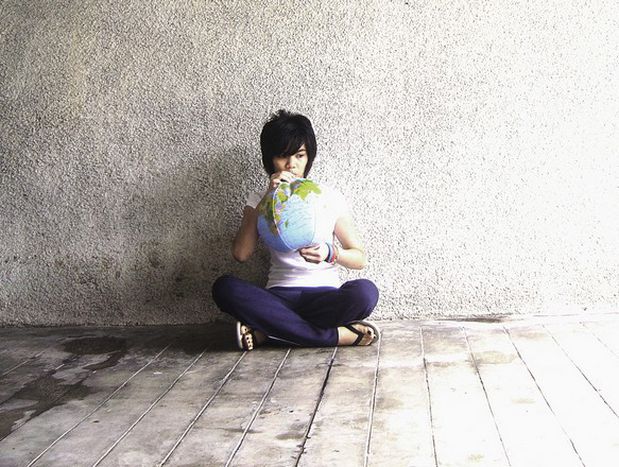
‘Outlandish’, ‘comical’, ‘shocking’: volunteers for international experience speak
Published on
The ‘VIE’ gives 18 to 28 year olds the opportunity to work in a company or in administration abroad for between 6 to 24 months. Those who have experienced it speak highly of it
For some, clinching a ‘Volontariat International en Entreprise’ (VIE) internship can be a mission impossible, like for those who have a masters, have studied and worked in several countries and have sent out over 200 unsuccessful applications. For others, however, the hunt is inanely easy; a young graduate secures two internships and a VIE, and another from the same society finds his ‘just by admiring some photos of aeroplanes at the EADS stall’ – by pure chance. The selection process is not necessarily done at random. The gap between the number of applications and the number of places (2,000 places for 40, 000 applications per year) immediately depicts the saturated state of this market.
Advice from the VI veterans is to be efficient, and directly contact the companies who sometimes put their applications online. Get some experience, because taking the quality of the applicants into account, employers are becoming more and more interested in younger employees. Don’t hesitate to lower your sights, like Celine Caulier did. ‘I wanted to go to Asia or the United States,’ she explains. ‘Then I broadened my horizons by focussing on a mission and not a destination.’
Friendly, descriptive, curious ... in the 1897 play Cyrano de Bergerac, the eponymous lead character explains why his large nose is useful. In the same spirit, here’s a list to describe how despite the daunting entry process, there are many positive things to be said about VI.
‘Outlandish,’ says François-Xavier, explaining the way the projects work for wise old men. ‘The head of the village drives me to the marabout’s house then prays for us.’
Comical, given that France is largely ignorant of the principal of VI, which exposes several problems with regards to accounting.
‘Gruelling.’ After some problems with a visa in India, Ronan Lemolgat had to abandon his project. ‘Fortunately, the company transferred me to its Chinese office. They had already invested in the training and accommodation so I could live more cheaply than an expat would. The last thing they wanted was for me to go to the competitors.’
‘Exasperating,’ says Francois Xavier. ‘VI is sometimes viewed as an irresponsible intern. I was disappointed by the group’s attitude. They didn’t allow us volunteers to drive into the Senegalese outback after a volunteer died in Niger.’
‘Depressing.’ Charlotte’s manager was made redundant. Since then, she hasn’t had a new manager. ‘I brought the situation to light, but in vain. The other volunteers find the answers to their questions on the internet, or rather to the missions which are entrusted to us! In short, what I miss most in my volunteer life is actually working!’
Shocking. ‘A group leader admitted to me that if the company wanted to separate itself from VI without a valid reason - I understand the professional error stipulated in our contract - it could do so very easily,’ Dude reports.
Gratifying, when the company covers all of the accommodation costs. ‘We receive a lot of aid and legal advice; one person is in charge of the volunteers, as well as participating in the project’s accommodation,’ adds Yaëlle Pibouleu in Panama.
‘Exhilarating.’ During his VIA, Aurélien Painchaud participated in an EU council meeting, representing the French flag.
What are the volunteers left with after a VIE?
Volunteers generally agree that the VIE experience has given them a clearer and more open vision of their professional careers. François-Xavier has realised that he is not ‘made to live in Africa.’ ‘I would rather work in Latin America,’ he admits. These people are more than happy to share the experience and don’t come up short on advice. ‘Stay humble,’ ‘take advantage of this professional trampoline,’ they recommend. ‘As with any contract, you must be aware of the conditions,’ says François-Xavier. The programme is becoming aware of its growing success and will be given an even greater significance at the end of 2009. For example, it will be included in the French quota of young people doing sandwich courses or who are in apprenticeships.
Translated from Tranches de VIE: le volontariat en entreprise pour le meilleur ou pour le pire!



